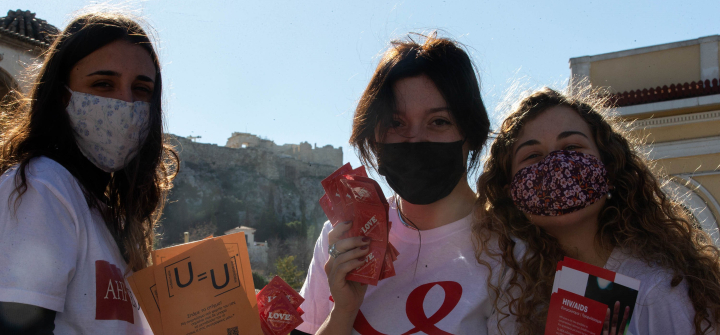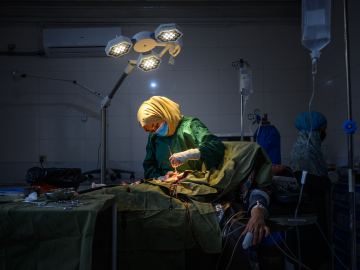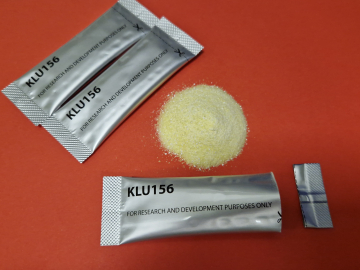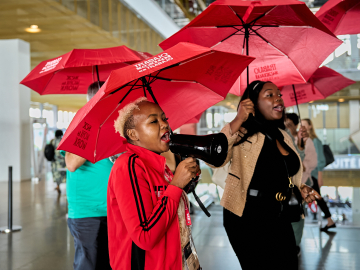A Vote for Zero Discrimination Is a Vote for Human Dignity and Health
3.7 billion people across more than 70 countries are expected to head to the polls in 2024. It is the largest election year in history. On the ballot? The rights, dignity, and health of the most vulnerable among us.
From India and South Africa to El Salvador and Indonesia, voters around the world are deciding on issues that have a direct impact on health—especially the health of those left furthest behind. As marginalized communities know all too well, discriminatory laws and policies that exclude or stigmatize are not only morally wrong but can also actively harm health and well-being. Conversely, a more inclusive approach that supports community leadership and civil society to flourish can lead to better health for all.
People living with HIV, other marginalized communities, and the science itself have made clear that non-discrimination, equity, and inclusion lead to better health outcomes. It is critically important this election year that voters and policymakers alike support inclusive governments, institutions, and policies that are responsive to the needs of the most vulnerable and marginalized, protect rights, and promote the good health and wellbeing of all people.
Global commitments, including the Sustainable Development Goals and the 10-10-10 targets on HIV non-discrimination, are guideposts that can help policymakers advance equitable and inclusive and laws and policies that promote better health. For voters, these commitments are also important mechanisms to hold leaders to account.
And despite a recent wave of discriminatory legislation in some countries, the fact is that more governments are recognizing the link between good laws and good health. While we can and should be sounding the alarm about pushback on human rights, gender equality, and civic space, we must also make clear to our leaders that the world is still trending toward equality.
Protective, non-discriminatory laws are being enacted around the world, with governments upholding the principles of democracy. Greece recently became the 37th country to legalize same-sex marriage and two-thirds of countries now do not criminalize same-sex sex. South Africa is on the pathway to decriminalizing sex work. Others, such as Nepal, are establishing protective laws, thanks to the tireless advocacy of the LGBTQ+ community—a remarkable reversal since the start of the AIDS pandemic.
This kind of progress is made possible by communities and civil society, which have long persevered against the social and legal bigotry that obstructs inclusive societies. Around the world, communities are challenging stigma and discrimination, enabling greater access to lifesaving treatment and prevention services and protecting and promoting human rights in dozens of countries. A recent report showcases a range of these community-led tactics being used to forge more supportive legal and policy environments. This kind of progress is enabled in part by strong political leadership that allows grassroots advocacy to flourish.
Through four decades of work on HIV, I had the privilege of witnessing the courage and power of community leadership. The leadership of people living with HIV, other marginalized communities, and their allies, made possible by an inclusive democracy is critical. This was at the heart of the Global Commission on HIV and the Law, which has helped advance evidence and rights-based laws in countries around the world, and the United Nations Development Programme-led SCALE Initiative, which elevates and expands the leadership of people living with HIV and marginalized communities in removing the structural barriers that impede HIV responses.
Unfortunately, progress is not linear. Almost a third of the world’s people live in countries where imprisonment and harm are real consequences for exercising their right to express themselves, assemble peacefully, and associate with whom they choose. These kinds of unjust laws and restrictions threaten democracy, inclusion, and progress on health and well-being.
Recent years have seen increased homophobia, transphobia, and a global backlash against human rights and gender equality. Human rights are under assault in too many places and discrimination is being wielded as a political tool, especially against marginalized groups; 2022 marked the most violent year for the LGBTQ+ community in Europe and Central Asia in a decade, while anti-LGBTQ+ discriminatory legislation surged last year in Africa. And, at our current rate of progress, it will take 186 years to close gaps in legal protections for gender equality.
That timeline is unacceptable.
This year’s elections mark an important chance to realize a more inclusive and healthier future sooner. As we commemorate the ten-year anniversary of Zero Discrimination Day on March 1, a day dedicated to ending all forms of discrimination and promoting dignity for all, we must ask ourselves on the way to ballot box: Will 2024 be remembered as the year we voted for equality or discrimination?
Elections have consequences, and voters and policymakers everywhere should choose democracy that protects the most marginalized and is built on zero discrimination for all. These are the hallmarks of a true democracy. By doing so, we can send a clear message and counter the rising tide of fear, exclusion, and hate. With just six years left to achieve Agenda 2030 and its pledge to leave no one behind, there is no time to waste.
Mandeep Dhaliwal is the director of the HIV and Health Group at the United Nations Development Programme
Join the 50,000+ subscribers in 170+ countries who rely on Global Health NOW summaries and exclusive articles for the latest public health news. Sign up for our free weekday newsletter, and please share the link with friends and colleagues.
Volunteers pose with leaflets about sexual health in Athens, Greece, on World AIDS Day, Dec. 1, 2021. Image: Marios Lolos/Xinhua via Getty





